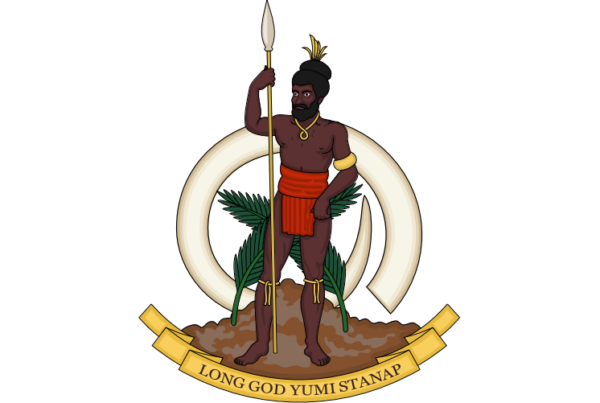By Alicia Nicholls
The unfortunate trope of the shady small island offshore tax haven is one firmly well-entrenched in common imagination. Watch eight out of 10 Hollywood blockbuster movies or series on financial crime and the criminal mastermind is almost always employing the services of a ‘tax haven’, often some small island in the Caribbean or otherwise, as his or her refuge of choice. Endless media articles and documentaries claim to be exposés of the ‘evils’ of small international financial centres (IFCs).
This negative and constantly reinforced stereotype has caused small offshore IFCs to be tarred and feathered as secrecy-shrouded jurisdictions with lax regulation and lorded over by corrupt governments welcoming money launderers and tax evaders with open arms. Perception is not always reality. In most instances, so-called offshore financial centres are generally more strictly regulated than onshore centres. Indeed, while offshore IFCs have turned to international finance as a legitimate diversification tool, the exaggerated and enduring ‘dirty tax haven’ trope threatens their development prospects.
The Offshore/Onshore Dichotomy
Traditional onshore IFCs like London, New York and Zurich are often contrasted with offshore centres. Zoromé in his 2007 International Monetary Fund (IMF) paper helpfully defines an offshore financial centre as a “country or jurisdiction that provides financial services to nonresidents on a scale that is incommensurate with the size and the financing of its domestic economy”.1 In other words, they tend to be small jurisdictions providing financial services mostly to non-residents. These financial services often include not just tax planning, but also banking, insurance, trust and other wealth management services. Several offshore IFCs are located in the Caribbean, but of course there are also many others internationally such as Singapore, Mauritius, the UK Channel Islands of Jersey and Guernsey, the small European countries of Malta and Luxembourg to name a few.
The services provided by offshore IFCs have come under intense scrutiny by various governments and the Organisation for Economic Cooperation and Development (OECD). ‘Offshore’ has been conflated with or almost used as a synonym for ‘illegal’. This is because of the perception that multinational corporations and the rich use them to hide their wealth to avoid paying their fair share of taxes and shifting the tax burden to the middle class. This perception, which is not entirely wrong, is helped by scandals such as the Panama Papers and Lux Leaks which revealed the large numbers of wealthy people, including politicians, who keep their wealth ‘offshore’. But many wonder whether this onshore/offshore dichotomy truly exists and if there is not a blurring of the lines. Several onshore jurisdictions such as the US states of Wyoming, Delaware and Nevada and the Irish city of Dublin offer services, including increasingly to non-residents, and were once thought to be mainly under the purview of offshore financial centres. Yet they do not receive a scintilla of the scrutiny the latter faces.
Fact vs Fiction
Recent developments reiterate that the narrative of the ‘clean’ onshore jurisdiction versus the ‘dirty’ offshore jurisdiction is one that is increasingly untenable to support. For example, the current sanctions on Russian oligarchs following Putin’s invasion of Ukraine have placed the spotlight on the large amounts of Russian money being laundered through London real estate. The UK has been criticised as turning a ‘blind eye’ to Russian money laundering.2 In fact, a jaw-dropping UK House of Commons’ Foreign Affairs Committee report concluded that “the Government’s rhetoric of “clamping down” has not been matched with constructive action” and urged the Government to stop the flow of illicit finance through its shores.3 Additionally, Ireland, the European headquarters for a growing number of US multinationals in the pharmaceutical and technology industries, has come under increased pressure for its low corporate tax rate but has never faced the level of scrutiny of small offshore IFCs.
Empirical studies conducted have found that it is generally easier to set up a shell company in an onshore jurisdiction than in many offshore jurisdictions because offshore jurisdictions tend to be more tightly regulated.4 For example, it is impossible to open a shell company in Barbados, a country which has made compliance and attracting businesses of substance key pillars of its value proposition as a global business jurisdiction. For a long time, competition has shifted from primarily tax rates, but on ease of doing business, the availability of a talented labour pool, and other factors which global businesses seek out for efficiency. Barbados seeks to leverage its natural advantages with others, such as its history of political stability, respect for the rule of law, investor-friendly climate and its tax and bilateral investment treaty network.
Barbados is often among the early adopters of new tax and AML initiatives, despite capacity constraints. Despite constantly changing rules and human resource and other capacity constraints, Barbados like other small IFCs has tried to keep up to date with constantly changing rules. Indeed, research has shown that the costs of compliance seem to outweigh the benefits derived from the sector.5 Now Barbados, like many other small IFCs, feels obliged to meet European Union (EU) tax and AML/CFT standards, another unrepresentative body of which they have no seat at the table. Similar to the US with FATCA a couple years ago, the EU has no jurisdiction to force the compliance of a sovereign state, far less a non-member, with its tax or AML/CFT rules under international law. But it increasingly seeks to extend its rules extrajurisdictionally through coercion, particularly by blacklisting countries.6 Faced with this power dynamic, small offshore IFCs increasingly feel compelled to not just meet but exceed these jurisdictions’ requirements, including those of the US and now the EU.
Moreover, the major money laundering scandals have taken place in major onshore jurisdictions and all involved banks in those countries.7 Yet, none of the countries in which these scandals occur ever appear on a Financial Action Task Force (FATF) grey list or blacklist, which is not surprising as these countries are FATF members and also have their own national blacklists on which they list small countries but never any powerful ones.8
The Tax Justice Network’s Financial Secrecy Index, which ranks jurisdictions most complicit in helping individuals hide their finances, now lists the US as the most financially secretive jurisdiction. Joining the US among the top countries now for financial secrecy are Switzerland at second place, followed by Singapore, Hong Kong and Luxembourg. Meanwhile jurisdictions typically viewed as ‘tax havens’ have been falling in ranking, showing that they are becoming less complicit.
Disproportionate Scrutiny And Development Implications
What the common narrative about offshore IFCs conveniently leaves out is that these countries have little, if any, incentive to be butlers to financial criminals. Indeed, the international business and financial services sector for many of these countries was a diversification strategy away from monocrop economies and is an important pillar for their economies.
Data on the economic contribution for each country varies in its availability. However, what is known is that it generates real economic activity, employment and foreign exchange. In Barbados, industry insiders argue that the sector remains the most important source of corporate income tax revenues for the island. It is also a demandeur of corporate rentals especially in the A-class commercial rental market. It can also lead to spin-off industries and new lines of business such as international commercial arbitration. This development benefit is increasingly threatened by developments emanating from the ‘dirty’ tax haven trope.
Small IFCs, particularly those in the Caribbean, face the reputational fall-out from being placed on arbitrary blacklists, including bank de-risking. Global banks started withdrawing or restricting correspondent banking services to many banks and money transfer services in developing countries, including in the Caribbean, Africa and the Pacific and the situation came into greater global focus around 2015/2016. It is often due to a cost/benefit calculation by large global banks that doing business with financial institutions in small offshore IFCs is not profitable enough compared to perceived risks and level of customer due diligence required.
The inclusion of these countries on blacklists can slow down the speed of transactions involving clients and transactions involving those countries, with implications for ease of doing business, the ability to complete international transactions, to pay for imports, to receive payments from exporters, to send and receive remittances and the like. Legitimate companies will not want to be associated with a jurisdiction that is blacklisted and may also get frustrated by the slow pace of transactions.
Both arbitrary blacklisting and the consequential de-risking have further consequences for financial inclusion and poverty, a point reiterated by Barbados’ Prime Minister, the Honourable Mia Amor Mottley while testifying at a special US House of Representatives Financial Services Committee Hearing on “When banks leave: The Impacts of De-Risking on the Caribbean and Strategies for Ensuring Financial Access”.9
The FATF has since released several guidance reiterating that wholesale de-risking (i.e. terminating wholesale relationships or exiting whole regions and lines of business) was not in conformity with FATF’s risk-based approach and also recently conducted a study on unintended consequences of ‘misapplication’ of FATF rules.
In summary, the perception of the ‘clean’ onshore jurisdiction versus the ‘dirty’ offshore jurisdiction is one that cannot stand the smell test and has non-negligible development consequences for the countries unfairly smeared. International organisations and their most powerful members train their eyes on small offshore IFCs while the real money laundering happens onshore in their own backyards. Maybe it is time to increase calls for a truly multilateral organisation to deal with financial matters.

Alicia D. Nicholls is an international trade consultant with over a decade of experience providing bespoke trade research and advisory services to a variety of clients. She is currently a research fellow and part-time lecturer with the University of the West Indies. Miss Nicholls is the founder of the Caribbean’s leading trade policy and development blog, www.caribbeantradelaw.com, since 2011. She also presents regularly at both regional and international academic and industry-related conferences and webinars. While she maintains an interest in all issues affecting Caribbean trade and trade policy, her specific research focuses primarily on global financial regulation and small States, foreign investment law and policy and international business.
- https://www.imf.org/external/pubs/ft/wp/2007/wp0787.pdf ↩︎
- https://www.youtube.com/watch?v=GAOJCcwxDug (60 Minutes Segment ‘Londongrad: How the U.K. became a laundromat for Russian oligarchs’ dirty money’ published on April 6, 2022) ↩︎
- https://committees.parliament.uk/committee/78/foreign-affairs-committee/news/171796/morally-bankrupt-billionaires-using-the-uk-as-a-safe-deposit-box/
↩︎ - See for example Findley Michael G Daniel L Nielson and J. C Sharman. 2014. Global Shell Games : Experiments in Transnational Relations Crime and Terrorism. New York: Cambridge University Press. ↩︎
- See for example Sharman J. C and Percy S Mistry. 2008. Considering the Consequences : The Development Implications of Initiatives on Taxation Anti-Money Laundering and Combating the Financing of Terrorism. London: Commonwealth Secretariat.
↩︎ - See Wright & Nicholls (2019): https://publications.iadb.org/en/eu-amlcft-list-high-risk-third-jurisdictions-implications-and-options-bahamas ↩︎
- https://www.cityam.com/city-special-the-biggest-money-laundering-scandals-in-banking/ ↩︎
- See Dukharan (2019): https://marladukharan.medium.com/when-a-blacklist-is-unfortunately-just-that-c76db353fe0b ↩︎
- https://financialservices.house.gov/events/eventsingle.aspx?EventID=409761 ↩︎





